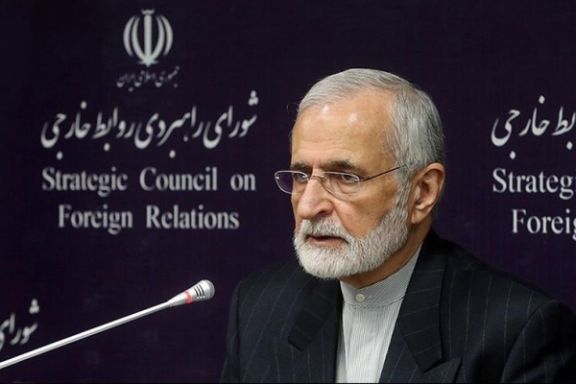Khamenei Aide Says Iran’s Afghan Policy Hinges On Taliban Behavior

A top foreign policy advisor to Iran’s Supreme Leader Ali Khamenei has said relations with Afghanistan can be good if the Taliban respects Iran’s interests.

A top foreign policy advisor to Iran’s Supreme Leader Ali Khamenei has said relations with Afghanistan can be good if the Taliban respects Iran’s interests.
Kamal Kharazi, who heads Khamenei’s Strategic Council on Foreign Relations and was foreign minister 1997-2005 under reformist president Mohammad Khatami, Wednesday that Tehran had no wish to interfere in Afghanistan’s internal affairs, if its interests were respected by the new rulers in Kabul.
Khamenei’s advisor mentioned Pakistan as the Taliban’s “main supporter,” and suggested that both Islamabad and the Taliban had an interest in Afghanistan’s new rulers moderating their behavior. Peace in Afghanistan and in the region could result if this happened, Kharazi said.
Iran cautiously accepted the Taliban takeover early on, hinting that the movement had changed since it controlled the country in the late 1990s and early 2000s. Tehran also saw United States withdrawal from Afghanistan as a strategic victory in its overall stated goal of ending the American military presence in the region.
Kharazi said Iran would closely watch events in the neighboring country for any signs of the reemergence of “terrorist groups.” Tehran regards both the Islamic State group (Isis/Daesh) and al-Qaeda as a danger for Shiites in general and Iran in particular.
He also called on the Taliban to curb drug smuggling to Iran, which has a porous border with Afghanistan. While some smuggled opium and other narcotics targets Iran, much is destined for foreign markets.
Kharazi most of all emphasized the security and rights of Shiites in Afghanistan. The Taliban have not been friendly toward Shiites, with dozens of bloody attacks against the community while they fought against US troops and the former Afghan government. Although some of these attacks went unclaimed or were attributed to the Islamic State, many in Afghanistan blamed the Taliban.
Iran “naturally has legitimate interests [in Afghanistan] that must be secured…[including] protection of the rights of Shiites and other groups and the preservation and the propagation of the Persian language, as part of the Afghan people’s heritage,” Kharazi said.
Given the Taliban are primarily Pashtuns, Kharazi’s concern for the Persian language is a defense of Tajik and Hazara communities whose mother tongue is Dari, an old and original dialect of Persian. Historically, Persian has been the main administrative and educational language in Afghanistan, benefitting from centuries of literature and scientific writings.
Kharazi emphasized that Iran’s policy toward Afghanistan would be “completely tied to the behavior of the Taliban.” If the new rulers “move toward an inclusive government, protection and security for all ethnic and religious groups, confront terrorism and adopt a policy of good neighborliness,” Iran was ready for cooperation and would assist Afghanistan with “all its experience and potential.”